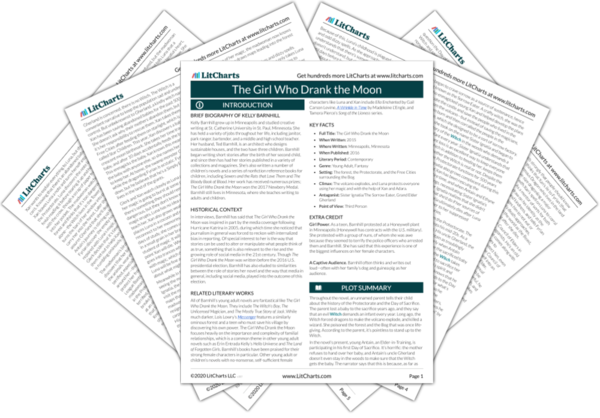Though Elder Raspin reads as a thoroughly ridiculous character, he’s also not wrong—Antain and Ethyne’s hope
is to blame for the changes gripping the Protectorate. This makes it clear that though Gherland may be the Grand Elder, his grasp on power is extremely tenuous. Because he has a kind side deep down, and spared Antain, he may now have to pay for that familial love by losing his power and his prestige.
